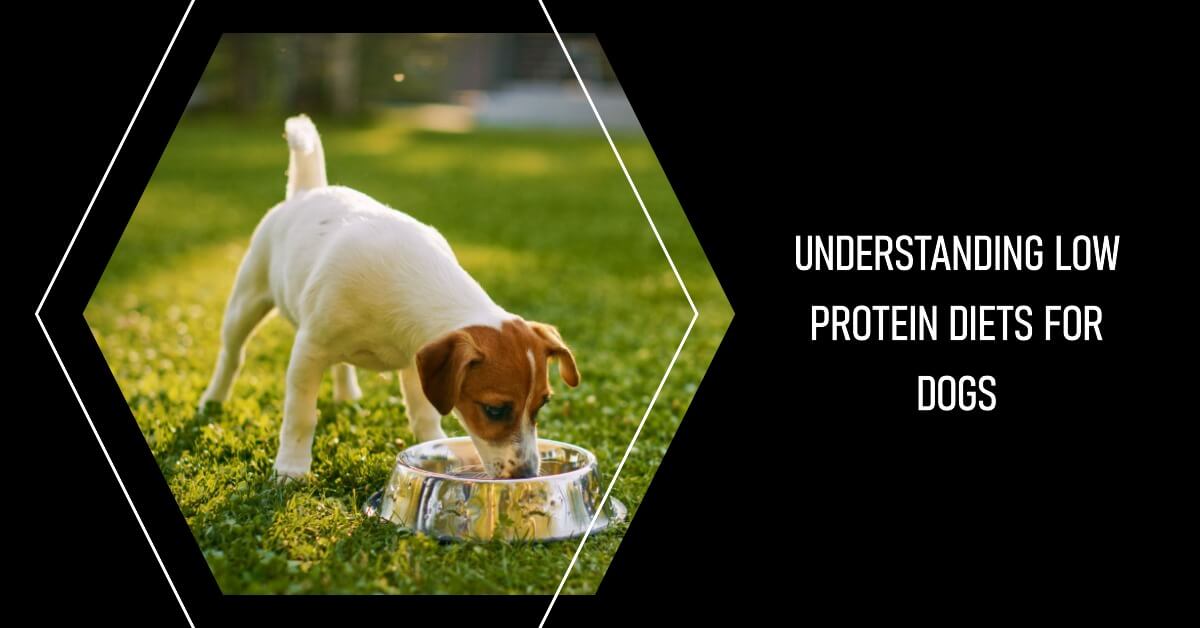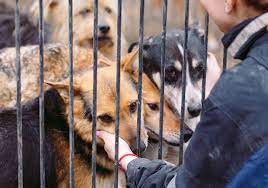When it comes to the health and well-being of our furry friends, diet plays a vital role. Just like humans, dogs have specific dietary needs that must be met to ensure their optimal health.
One dietary approach that has gained attention in recent years is the low protein diet for dogs.
In this article, we will explore the concept of a low protein diet, its potential benefits, and considerations to keep in mind when implementing it for your canine companion.
Table of Contents
ToggleUnderstanding the Basics of a Low Protein Diet
A low protein diet is a specialized dietary regimen that restricts the amount of protein intake for dogs.
Protein is an essential macronutrient that serves as the building block for various bodily functions.
It is necessary for the growth, repair, and maintenance of tissues, organs, enzymes, and hormones.
However, certain health conditions may require a reduction in protein consumption for dogs.
Dogs typically require higher protein levels in their diet compared to humans. This is because their bodies have a higher metabolic rate and require more protein to support muscle mass and other physiological processes.
However, there are situations where a low protein diet may be beneficial for dogs, such as in the management of specific health conditions like kidney disease, liver disease, or certain urinary issues.
The Purpose behind a Low Protein Diet for Dogs
Managing Kidney Disease
One of the primary reasons for implementing a low protein diet is to support dogs with kidney disease.
When dogs have compromised kidney function, their ability to efficiently filter waste products from the bloodstream is impaired.
By reducing protein intake, the workload on the kidneys is minimized as they don’t have to process and eliminate as much nitrogenous waste.
This can help slow down the progression of kidney disease and improve the overall well-being of the dog.
Reducing Urinary Issues
Some breeds are prone to developing urinary issues, such as the formation of urinary stones.
A low protein diet can help control the pH and mineral balance in the urine, reducing the likelihood of stone formation.
It can also help manage conditions like urinary tract infections, which can be exacerbated by a high-protein diet.
Managing Liver Disease
Dogs with liver disease often have difficulty metabolizing proteins. A low protein diet can help reduce the workload on the liver by providing easily digestible proteins and minimizing the production of ammonia and other toxins.
This can help improve liver function and alleviate the symptoms associated with liver disease.
Supporting Aging Dogs
As dogs age, their nutritional needs change. Senior dogs may experience a decline in kidney function, making a low protein diet beneficial in reducing the strain on their kidneys.
Additionally, a lower protein intake can help prevent muscle wasting, maintain a healthy weight, and support overall health in aging dogs.
Implementing a low protein diet should be done under the guidance of a veterinarian to ensure the diet is tailored to the specific needs of your dog.
Implementing a Low Protein Diet for Dogs
Implementing a low protein diet for dogs requires careful planning and consideration. Here are some key factors to keep in mind:
Consultation with a Veterinarian
Before making any significant changes to your dog’s diet, consult with a veterinarian.
They will evaluate your dog’s overall health, consider any existing conditions, and recommend an appropriate protein level for your dog’s specific needs.
This personalized approach ensures that the low protein diet is tailored to your dog’s unique requirements.
Choosing the Right Dog Food
Look for commercial dog foods formulated for low protein diets. These diets are specially designed to provide balanced nutrition while restricting protein content.
It’s important to choose high-quality dog food brands that meet the nutritional requirements for your dog’s specific condition.
Read the ingredient list and ensure that the food contains essential nutrients other than protein to support your dog’s overall health.
Balancing Other Nutrients
While protein intake is reduced in a low protein diet, it’s essential to ensure that other essential nutrients are appropriately balanced.
Carbohydrates and fats can be adjusted to maintain energy levels and overall nutritional balance. Your veterinarian can guide you in selecting the right balance of macronutrients for your dog.
Additionally, incorporating fruits and vegetables into your dog’s diet can provide additional vitamins, minerals, and antioxidants.
Supplementation
Depending on your dog’s specific needs, your veterinarian may recommend supplements to ensure they receive adequate essential amino acids, vitamins, and minerals.
These supplements can help maintain proper nutrition and prevent any deficiencies that may arise from a reduced protein intake.
It’s important to follow your veterinarian’s guidance regarding supplementation to ensure your dog’s nutritional needs are met.
Monitoring and Adjusting a Low Protein Diet
Regular monitoring of your dog’s health and well-being is crucial when implementing a low protein diet.
Keep an eye out for any changes in energy levels, weight fluctuations, or adverse reactions to the diet.
Regular check-ups with your veterinarian will allow for ongoing evaluation and adjustment of the diet as needed.
Your veterinarian may recommend periodic blood tests to assess your dog’s overall health and ensure that the low protein diet is effectively meeting their needs.
Conclusion
A low protein diet can be a valuable dietary approach for dogs with specific health conditions, such as kidney disease, urinary issues, liver disease, and aging.
By reducing protein intake under the guidance of a veterinarian, we can support our canine companions’ overall well-being and help manage these conditions more effectively.
Remember, each dog is unique, and their nutritional needs may vary, so consult with a professional to ensure the best possible diet for your beloved furry friend. With a balanced and well-managed low protein diet, we can contribute to our dogs’ long and healthy lives.



![The Ultimate Guide to Road Tripping with Your Dog [2025 Update]](https://bellabeanupdate.com/wp-content/uploads/2025/05/pexels-photo-1143369-300x209.jpeg)





























